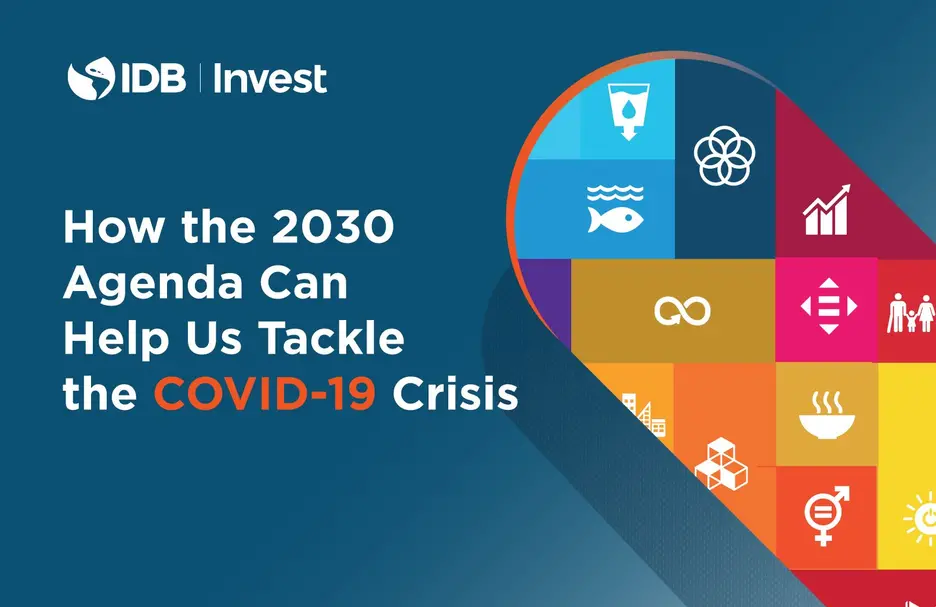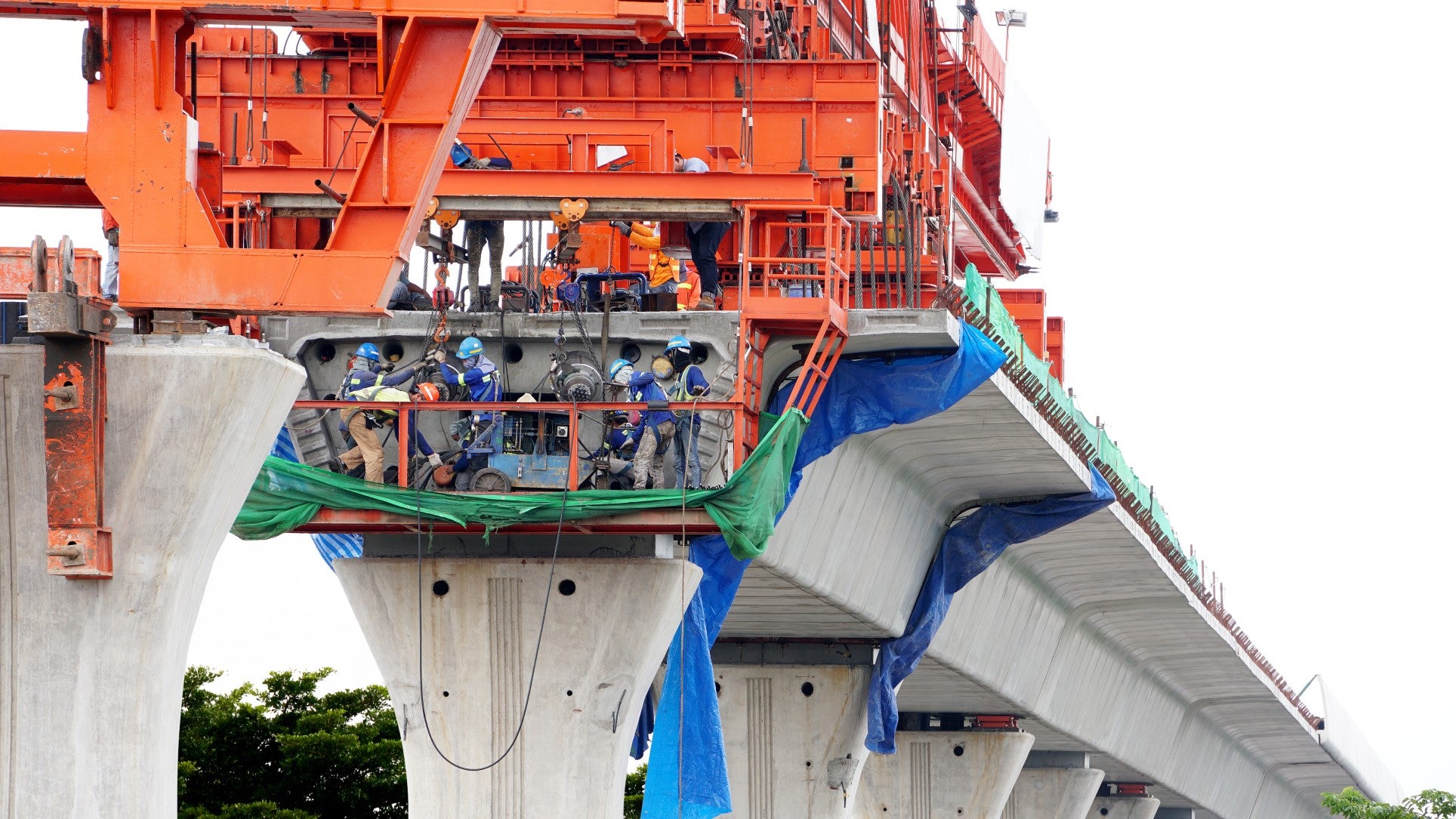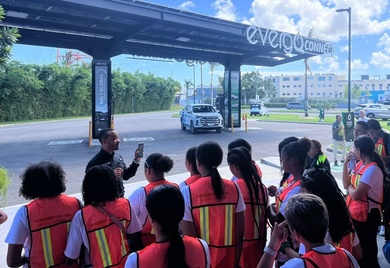How the 2030 Agenda Can Help Us Tackle the COVID-19 Crisis

The coronavirus pandemic is a global health crisis that has upended the lives of millions of people practically overnight and plunged us into the worst economic recession in 90 years. The International Monetary Fund (IMF) says the "Great Lockdown" is unprecedented and this year developed economies will shrink by 6% and emerging economies by 1%. The IMF, the World Bank and the IDB Group all agree that Latin America and the Caribbean will suffer one of the worst setbacks in its history. It is the IDB Group’s view that, in the baseline scenario, the region’s GDP will decline as much as 5.5%.
Those most affected in the region will be the most vulnerable populations: people who live in poverty or extreme poverty, as well as workers in the informal sector, whose activities depend to a significant degree on close contact with people. A recent report from the Economic Commission for Latin America and the Caribbean (ECLAC) projects that this crisis will increase short-term poverty and informal employment, the latter of which many people turn to as a survival strategy.
At the same time, the spread of this illness has further laid bare the social differences in the region—an echo of the mass protests seen during the last quarter of 2019. Dealing with this crisis will require better social cohesion from all of us.
As if that weren’t enough, the "Great Lockdown” is bringing us to a tipping point with regard to the UN Sustainable Development Goals (SDGs) of the 2030 Agenda, warns a report from UN Global Compact. Some of the effects of the crisis may be positive—such as reduced traffic and improved air quality as a result of the quarantine, both of which have been seen in several cities in the region and could contribute to reducing the effects of climate change (SDG 13).
In general, however, COVID-19 will almost certainly have a negative impact on the progress toward multiple SDGs. For example, we will see setbacks in improvements to health (SDG 3); in improved access to education (SDG 4) as schools close and online classes are not accessible to everyone; and in creating decent work (SDG 8). Along with this, COVID-19 affects women differently than men (SDG 5). Because they are the first line of defense, women are disproportionately affected, as they account for more than half of all doctors and 90% of nurses. Also, their income is more dependent on the informal sector, and they are put at greater risk of domestic violence during quarantines.
While countries must make it a priority to designate more resources to stopping the pandemic, it is critical for their responses to be aligned with the SDGs. We have 193 countries committed to reaching 17 SDGs within 10 years, even as this crisis impacts most of them. This represents a tremendous opportunity to use the 2030 Agenda as a guide in both responding to this emergency and planning for our future.
There are multiple ways the SDGs can be integrated into the economic recovery. For example, increased investment in healthcare equipment and the purchase of coronavirus tests is an opportunity to take those efforts further and improve the health sector’s supply chain, expand universal access to healthcare and bolster epidemiological research in the region (SDG 3). To continue reducing the impacts of climate change (SDG 13), the current air quality improvements could inspire businesses to rethink their activities using a more sustainable production paradigm, as suggested in a recent IDB analysis.
We also should not forget the work that remains to be done on water and sanitation systems (SDG 6), the creation of decent jobs (SDG 8), improvements to food security (SDG 2), the promotion of sustainable cities (ODS 11), the transition to clean energy (SDG 7) and the establishment of partnerships to move this agenda forward (SDG 17), to give a few examples. Investing in these areas will be essential for our development in the coming years. If we fail to do this, we will not be able to eradicate poverty (SDG 1) in the next decade, something that is already at risk. One study from United Nations University found that this crisis will increase the number of people living in poverty worldwide by 580 million, and ECLAC puts that figure at 45 million for our region.
This economic recovery has to be different. It has to focus on the kind of environmental and social sustainability that will steer us toward a low-carbon economy that is also resilient to the effects of climate change and that doesn’t leave anyone behind. To get there, the public sector, private sector and civil society will need to work together.
In particular, the private sector, as a main source of employment and investment, plays a fundamental role. Companies must make immediate efforts to protect their employees and support containment measures with telework mechanisms, social distancing and basic healthcare support. In the medium term, the lessons learned must be used to implement forms of work that contribute to reducing emissions, while at the same time creating jobs. Meanwhile, in the medium and long term, companies and investors can rebuild their supply chains and invest in consolidating sustainable production and consumption (SDG 12) in inclusive and innovative industries and in resilient infrastructure (SDG 13).
Multilateral development banks will play an important role in making this change. This includes IDB Invest, the largest development financier of the private sector in Latin America and the Caribbean. This pandemic is changing the global paradigm, starting with our behavior and patterns of consumption. The world cannot allow a crisis of this magnitude to happen ever again, even more so in Latin America and the Caribbean.■
LIKE WHAT YOU JUST READ?
Subscribe to our mailing list to stay informed on the latest IDB Invest news, blog posts, upcoming events, and to learn more about specific areas of interest.
Subscribe



